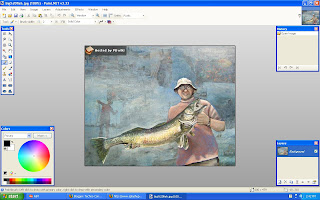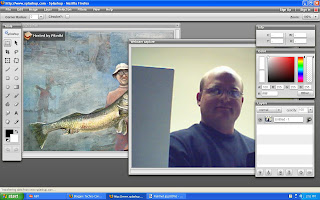Knowledge Transfer and Public Engagement in Second Life - Dave Taylor
Teachers often ask me to help them with their file management. Often I have found that the most unorganized people in the real world have some of the best digital file management habits and those who are real good about organizing their physical environment in the real world often have the worst organization of digital resources. Of course this is not always true. Today I found out about Bumptop, a system extension for Windows that makes your operating system resemble more closely your real world desk. Such a tool might be what many people who have trouble with digital file management need. Now, where did I put that video?
Yesterday I blogged about some of the online operating systems featured in PC Magazine's March 2008 article "The Best Free Software." Today I had a chance to evaluate some of the graphics programs they include in their list.



 Glide Write
Glide Write
In January I posted that Goodhue Public School would be holding a Technology Expo at the end of the month. Due to a makeup day that event had to be postponed. It is now scheduled for February 18th. All are welcome to attend (teachers, administrators, parents, community members, etc.). I extend this invitation to anyone, especially teachers in schools in SE Minnesota. This will be an afternoon for us to share some new things we are doing with technology and a time for reflection. For more information on the sessions click on the links below.
The following is a list of the email subscriptions I wrote about in my last post. It is also the text that appears on my school webpage for teachers to use:





